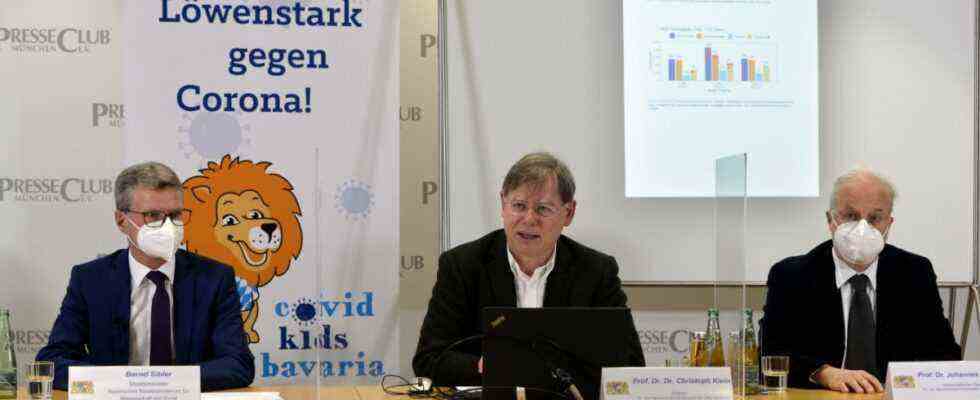In the past, children have fueled the infection process no more than the rest of society. This is shown by the large-scale long-term study “Covid Kids Bavaria”, the results of which were published on Thursday. According to this, the number of corona cases in crèches, daycare centers and schools in the second and third waves of the pandemic was about as high as in the general population – but not disproportionately, as initially rumored.
“There is no evidence that children were the virus slingshots that some thought they were,” said one of the study leaders, Christoph Klein, director of pediatrics at LMU Munich’s Hauner Children’s Hospital. He called the results “relatively unspectacular,” not without reason: they fit into the picture drawn by similar studies. “There are no pandemic drivers, we are all responsible,” said Berlin virologist Christian Drosten.
The scientists were in 99 day care centers and 100 primary schools between October 2020 and March 2021 and took more than 7000 swabs and later antibodies. It was the most comprehensive cooperation of the Bavarian university children’s hospitals to date – and the first nationwide study of this kind. The evaluation took a correspondingly long time: the results were published almost a year later than planned. For this they are well-founded, if not perfect. Because participation was voluntary, more hygiene-friendly people tended to take part, Klein said. However, this did not lead to gross distortions.
According to Klein, the results cannot be transferred one-to-one to the current omicron wave. However, initial data from England, the USA and South Africa showed that children are no more affected than adults, even with the highly contagious but less lung-invasive mutant.
Of course, this does not resolve the tension between the emotionally discussed question of whether infections in children should be prevented as far as possible or whether it would be better to accept mild courses in view of the psychological collateral damage. This is a dilemma for many parents. While the psychological consequences of a long lockdown in children are proving to be dramatic, the significance of the long-term consequences of an infection for children has not yet been conclusively clarified. The number of cases in the long-Covid outpatient clinics has so far been manageable, meanwhile the number of mental problems in children and adolescents requiring treatment has almost doubled. Also non-infected children complain of headaches, tiredness, exhaustion, which makes it even more difficult to differentiate between the two.
The seven-day incidences are currently reaching record highs, especially among young people, who are also being tested a lot. Johannes Hübner, the deputy director of paediatrics at the Hauner Children’s Hospital, urged prudence on Thursday. He referred to the children’s hospitals in England and the USA, which are not overcrowded with patients, even if the incidences there are also high. “With the appropriate measures, schooling is possible and safe even in times of the pandemic,” he said – and emphasized: “Closures cause collateral damage.”
“Covid Kids Bavaria” should also provide information about this. The data sets here are even more extensive than those of previous studies. More than 10,000 questionnaires are currently being evaluated by a specialist at the LMU. So it might be a while before the results are published. Science Minister Bernd Sibler (CSU) saw himself confirmed on Thursday by the previous opening course: “Children live from social contacts and need structures and stability,” he said.

